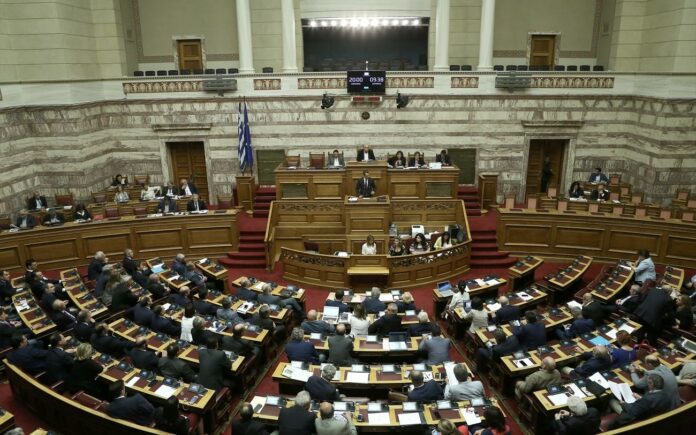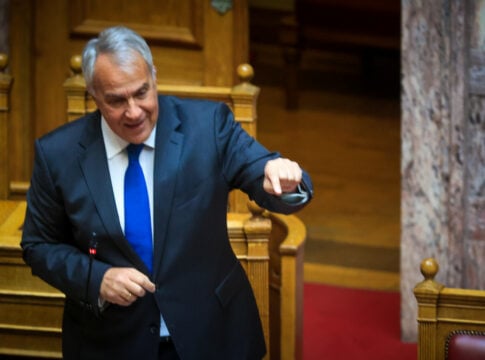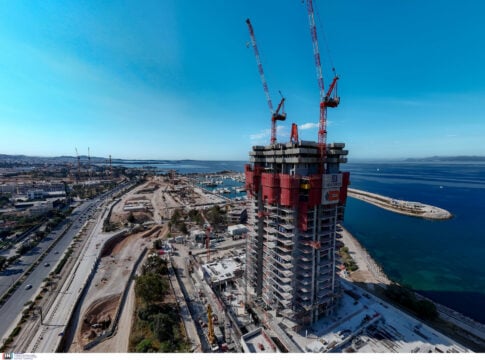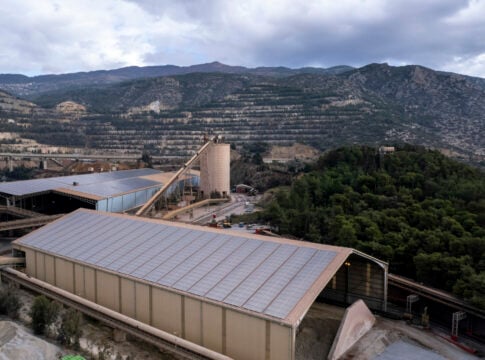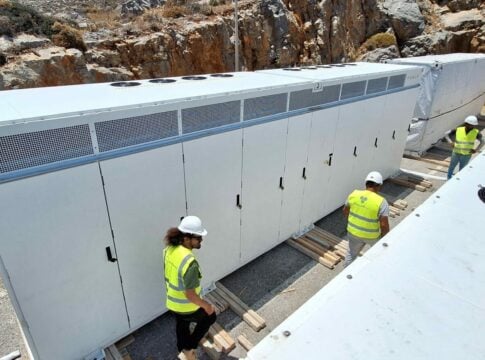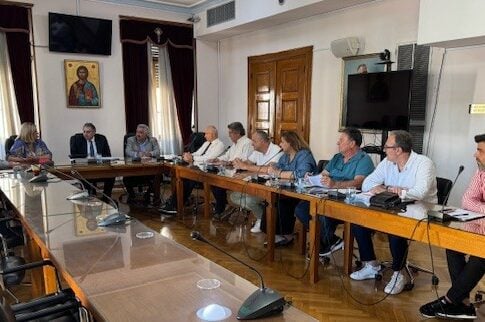A multi-year investigation by successive anti-corruption prosecutors into alleged kickbacks by Novartis’ Greek subsidiary to top politicians in the country is apparently proving more of a “tempest in a teapot” than the “greatest scandal” in modern Greece’s history, with reports on Monday pointing to a failure to find any incriminating evidence against nine out of the 10 implicated former office-holders.
Three former prime ministers, including a caretaker premier for a few days, two ex-finance ministers along with past health ministers between 2007 and 2014 – but excluding current Cabinet members in the SYRIZA government – were initially included in an indictment sent to Parliament – as foreseen under Greek law – for the legislature to decide if it would prosecute any of the 10. Nevertheless, the indictment was sent back to the anti-corruption prosecutor, who on Monday merely conveyed a request for only one former politician – Andreas Loverdos – to provide testimony as a “suspect” in an alleged crime.
The claims against the office-holders in the voluminous indictment are entirely based on testimony given over several months by three anonymous witnesses, including hearsay accounts. The testimony implicated the 10 prominent politicians and office-holders, most of whom are bitter political rivals of the current hard left SYRIZA government.
The prosecutor’s request, along with the latest version of the indictment, will land back in Parliament on Tuesday.
The allegations against Evangelos Venizelos, Andreas Lykourentzos, Giorgos Koutroumanis and Panagiotis Pikrammenos – a caretaker premier – were based on closed-door testimony of the three anonymous witnesses. The allegations apparently have been proved baseless, with no further action being taken.
The investigation will continue, at least until this month, against another five.
Conversely, Loverdos, a former PASOK minister and current Parliament MP, is the only former office-holder whose name is linked with the request by the relevant prosecutor. The request is that he be questioned as a suspect for the alleged offenses of breach of faith and bribery.
According to reports, the prosecutor refers to “indications of wrongdoing” against Loverdos, but not from testimony by the trio of initial anonymous witnesses, but rather by a new, fourth anonymous witness. The latter emerged last October, in fact, providing testimony to anti-corruption prosecutor Eleni Touloupaki on eight separate occasions.
The investigation will briefly continue into the anonymous witnesses’ claims against former premier Antonis Samaras, EU Commissioner Dimitris Avramopoulos, current Bank of Greece (BoG) Gov. Yannis Stournaras, as well as former health minister Adonis Georgiadis and Marios Salmas. Nevertheless, reports point to no evidence turning up so far to indicate wrongdoing in the case.
In Loverdos’ case, his potential testimony before prosecutors will determine if the latter will recommend that charges be filed.
In a scathing response, Loverdos railed against a “miserable and rotten plot” against him, while warning that he will seek legal recourse over what he charged is an abuse of power.
Loverdos also referred to “hooded perjurers”, i.e. the anonymous witnesses.
In its response, main opposition New Democracy (ND) recycled hyperbole by current alternate justice minister, Dimitris Papaggelopoulos, charging the “so-called ‘greatest scandal since the establishment of the Greek state’ is proving to be the biggest plot ever set up by a Greek government against its political opponents”.
Papaggelopoulos is also noteworthy for the fact that he served as a top anti-terrorism prosecutor during a ND government between 2004 and 2009, as well as the head of Greece’s intelligence agency for a few months in 2009.
Finally, reports noted that prosecutor Touloupaki wants to conclude the probe, given that her tenure in the post is expiring. Her predecessor, Eleni Raikou, had resigned after condemning what she called “non-institutional interventions” in her Novartis subsidiary investigation.


